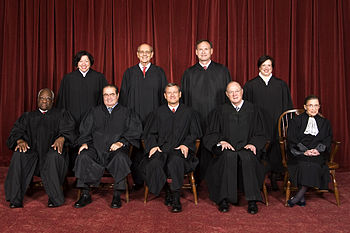By Ian D. Jones
@idjonesphotog
There are several terms for a person who uses a wheelchair. Disabled, handicapped, crippled (shudder) and wheelchair bound (shudder again). But which one should you use? If I wanted to be glib, I’d say “use the person’s first name.” But that doesn’t always work, unfortunately. Especially if you’re looking for someone in particular, and another someone doesn’t know who “Steve” is. We humans like to categorize in boxes. Sadly, that holds true even for other humans, which opens another can of worms entirely. So, what do you do? What’s “safe” to say?
With some geographical variance, the consensus in the US for the day-to-day term generally seems to be “disabled”. “Why?” you ask. “It sounds bad: ‘disabled’.” At first glance, sure. Things become clearer when you look at the history of the formerly preferred term, “handicapped”. Ron Amundson, professor emeritus of Philosophy at the University of Hawaii at Hilo says the term first referred to equalizing the field in horse racing (and other games) in the 1750s. Around 1875, it began to be used as a metaphor for disadvantages. It took on its current meaning in 1915, when the term began to be applied to physically (disabled) children. Finally, in the 1950s, adults and the mentally disabled were included under the umbrella term. Over two hundred years of troubled use.
The preferred term switched to “disabled” around the 1970s and 80s. The World Health Organization defined the differences between the two terms in 1980 in its International Classification of Impairment, Disability and Handicap: “Disability” is a restriction or lack of ability to perform an activity. “Handicap” is the result when a normal life role cannot be fulfilled. It’s a subtle difference, but a big one.
Even now, though, it’s not completely written in stone that “disabled” is preferred over “handicapped”. For one thing, as I said, there’s some geographical variance. Even here on campus, there are two “handicapped lifts”, providing access to 2400 and the gym. But I think that’s more for clarity, because a “disabled lift” sounds like it’s out of order.
OK, why not “crippled”? That’s a flat out “NO.” That one has more of a feeling of affliction and suffering. This isn’t the sixteenth century. I know that some areas of the US (and probably some other portions of the English speaking world) use the term a lot, but it’s about as politically correct as the n-word.
Ditto for “wheelchair bound”. It takes liberties. It assumes that the person in question cannot function without their wheelchair, when in fact many people use wheelchairs in everyday life but also may use canes and crutches, or even nothing at all for shorter distances. There’s a meme going around with a woman getting out of a wheelchair to reach a bottle of wine at the store, with the caption “Alcohol makes miracles happen.” The term (and the meme) are offensive not only because of its presumption, but, of course, it’s also politically incorrect.
But why the term “disabled”? It sounds bad to a lot of people. I think of it this way. Picture your abilities as being on a huge board with toggle switches and dials. Everyone’s got different switches turned on and off. My math dial is turned way down (I have a math disability, not a math handicap), but my language dial is at 11. My walking dial…is broken.
What about “differently abled”? I can’t speak for every disabled person (even on what I’ve said above,) but to me “differently abled” is just pandering. Everyone has different abilities. I can’t speak French, but I bet a few of you reading this can.
Now, there’s been a heated discussion for years about “political correctness”, and for better or worse, what term or terms to use for the disabled is lumped in there. You’ve heard of sexism and racism, of course. You can think of “ableism” as the same concept. Using the wrong term is a form of ableism. So it’s really important for society to nail this down, and the sooner the better.



